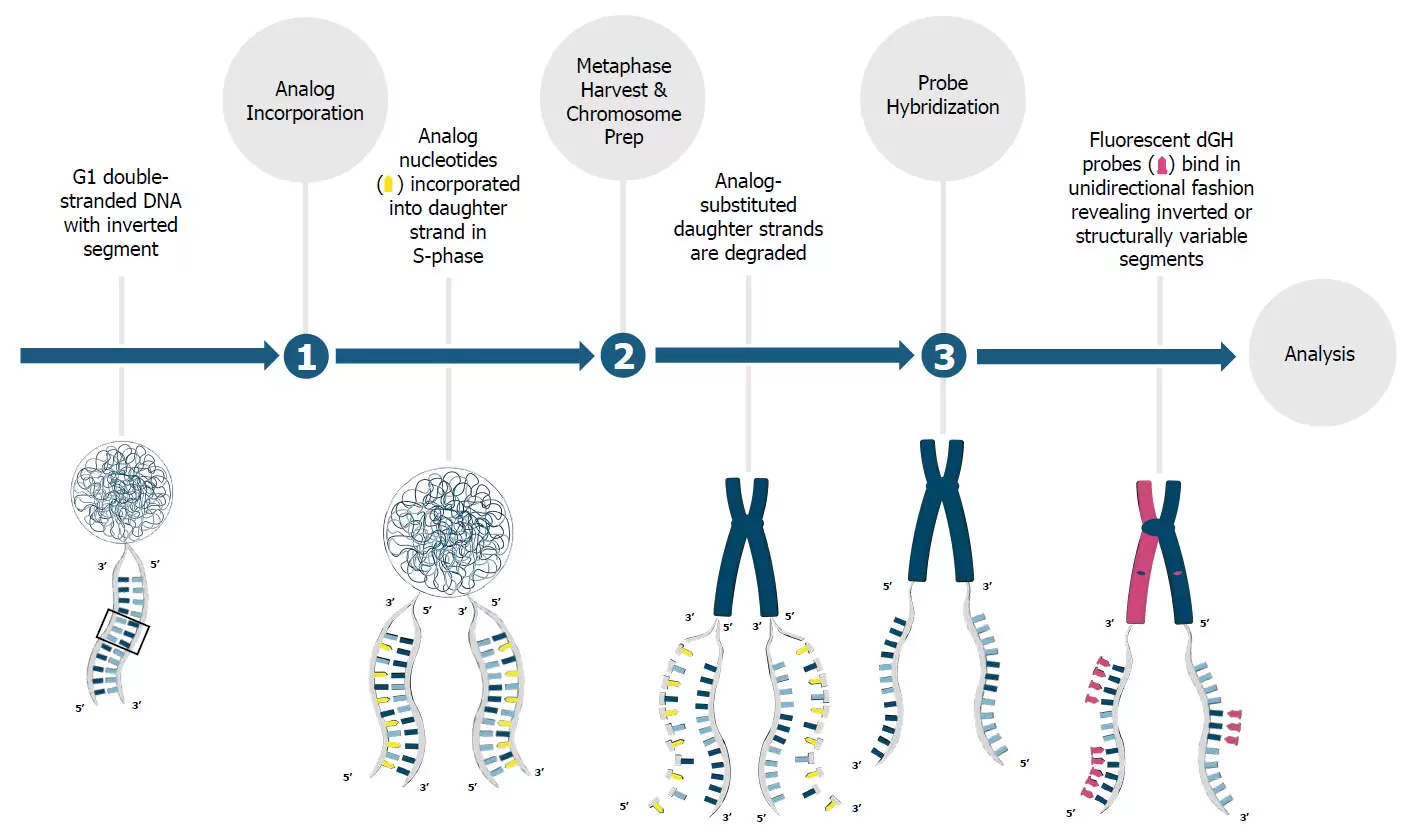Directional Genomic Hybridization
Directional Genomic Hybridization
Whole-Genome, Single-Cell Measurement of Structural Variation
KromaTiD’s directional Genomic Hybridization (dGH) technology combines bioinformatics driven design of unique single-stranded synthetic probes with strand-specific hybridization strategies, and is the only genomics approach capable of detecting DNA sequence, location and orientation in a single test.
dGH is distinguished from FISH by both the chromosome prep and the probe design. dGH chromosomes contain two strands of oppositely oriented, parental DNA only - no daughter strands. Single-stranded probes are designed to target only the Watson strand and only unique sequences.

dGH in-Site Service
dGH in-Site probes harness KromaTiD’s Directional Genomic Hybridization technology to provide whole genome tracking of inserted DNA cassettes as small as 2 kb. dGH in-Site gives researchers the ability to directly visualize and characterize outcomes of cellular engineering at their known edit sites.
dGH SCREEN Service
By spanning entire chromosomes, dGH SCREEN enables researchers to directly visualize structural rearrangements anywhere in the genome, making it possible to discover previously unseen or unsuspected rearrangements without knowing where to look in the first place.
dGH Cell Prep Kit
The directional Genomic Hybridization (dGH) Cell Prep Kit is used to prepare actively dividing cells for any of KromaTiD’s dGH assays.
dGH in-Site™ CAR-T Probe Kit
KromaTiD’s dGH in-Site™ CAR-T Kit enables you to bring the power of directional Genomic Hybridization assays to the characterization of your T cell engineering. Track sequence, location and orientation of the key CAR-T genomic loci TRAC and B2M in a single test.